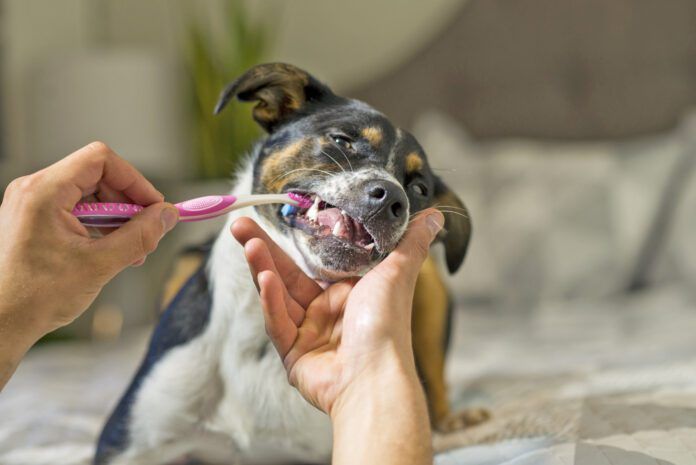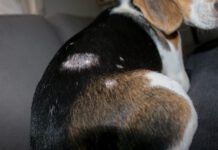If your dog’s breath makes you feel like you’re going to pass out every time your pup exhales, it’s time for an intervention. You can freshen dog breath at home, but you must be diligent.
Best Way to Freshen Dog Breath
To start, get your dog’s teeth professionally cleaned by your veterinarian. This will give you a big boost in trying to freshen dog breath at home. Just like when you get a dental cleaning, your dog’s teeth will be scaled and polished to remove the nasty plaque and tartar that contribute to bad breath. Periodontal disease is a major cause of bad breath.
If your dog has signs of infection in his mouth, your veterinarian will prescribe antibiotics to kill the bacteria. Oral infections create a particularly pungent odor.
How to Freshen Dog Breath at Home
At home, work to keep your dog’s mouth sparkly clean.
You can brush your dog’s teeth with an enzymatic toothpaste made for dogs. Introduce brushing slowly – start by just letting your dog lick the toothpaste off a toothbrush. The enzymes in enzymatic toothpaste work to break down plaque just by being in the mouth. Over time, you will be able to add brushing action to really clean your dog’s teeth, but even if that never happens, the enzymatic toothpaste will help. We like the PetSmile system, which has enzymatic toothpaste and applicators without bristles; you can rub the stuff right on the teeth and gums, and many dogs prefer this method. Homemade toothpastes may be more economical, if you’re willing to do the work (no human toothpaste, as it isn’t made to be swallowed).
Dental chews and water additives are another easy way to help prevent plaque buildup on your dog’s teeth that cause odor. A prescription dental food may help dogs with chronic tooth issues and bad breath.
If you want to naturally freshen dog breath, provide your dog with safe chew items. These include raw marrow bones (given under supervision), carrots, apples, and even celery. Chewing works similarly to tooth brushing by physically removing the bacteria that creates plaque. Note: dental sprays aren’t highly regarded as effective.






